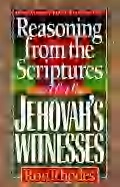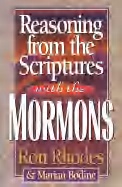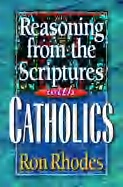Ron Rhodes
Ron Rhodes is definitely a Calvinist, though he is a 4-Point Calvinist:
4-Point Calvinist, Ron Rhodes, explains: “Without the slightest inconsistency the unlimited redemptionists may believe in an election according to sovereign grace, that none but the elect will be saved, that all of the elect will be saved, and that the elect are by divine enablement alone called out of the state of spiritual death from which they are impotent to take even one step in the direction of their own salvation. The text, ‘No man can come to me, except the Father which hath sent me draw him’ (John 6:44), is as much a part of the one system of doctrine as it is of the other.” (The Extent of the Atonement: Limited Atonement Versus Unlimited Atonement)
That clearly shows that he is a Calvinist, prescribing to the Calvinistic doctrine of Unconditional Election. However, here is his commentary on Unlimited Atonement, and why he falls into the 4-Point category:
4-Point Calvinist, Ron Rhodes, explains: “The charge that unlimited atonement leads to universalism is special pleading. ‘Just because one believes that Christ died for all does not mean all are saved. One must believe in Christ to be saved, so the fact that Christ died for the world apparently does not secure the salvation of all. Those who assert this are simply wrong.’” (The Extent of the Atonement: Limited Atonement Versus Unlimited Atonement)
Answers to Three Common Questions, by Ron Rhodes
1. If Christ died for those who go to hell, what benefit have they from His death? Answer: “We may as well ask, What good did the bitten Israelites get from the brazen serpent to which they refused to look? None, of course, but God got the glory of being a God generous enough to provide for them.”
2. If satisfaction has been made for all, how can any go to hell? Answer: “Though God has provided atonement for all, He has also stipulated that none get the good of it, except through repentance and faith. Deliverance from doom was not contingent on the atonement itself but on the reception of it. Men can starve in the presence of a free feast, if they refuse to partake of it.”
3. Why would God have Christ die for those whom He, in His omniscience, knew would never receive His provision? Answer: “Why did God richly endow the angels who subsequently sinned, when He knew they would not use His gifts to their everlasting good? Why did He bestow valuable gifts on our first parents, to be employed for their and our advantage, when He knew they would not so employ them? Why did He send Noah to preach to people He knew would not receive His message? And why did He send the prophets to Israel, when He knew they would continue in their apostasy? There is such a thing as the divine benevolence.”




